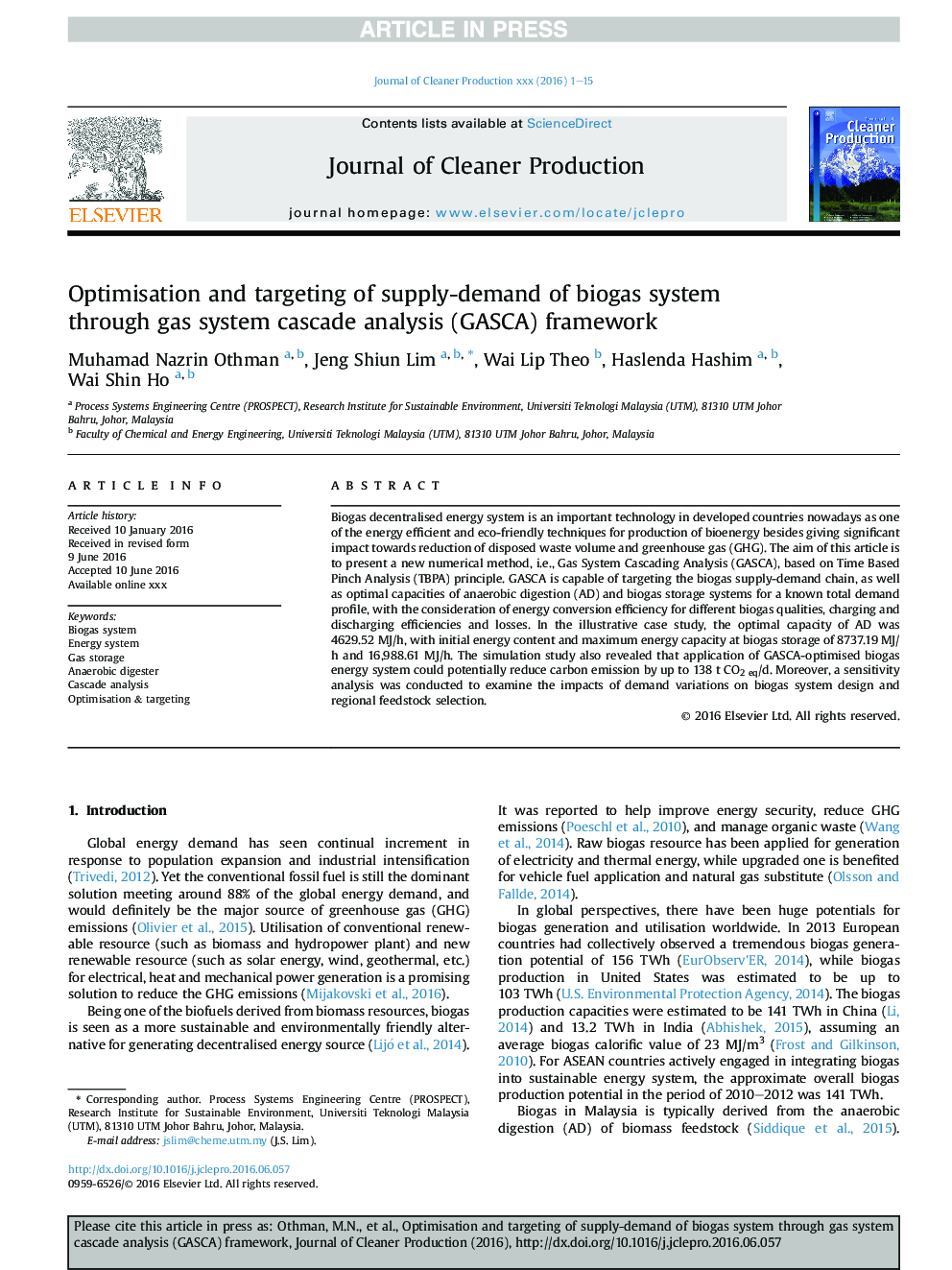| Article ID | Journal | Published Year | Pages | File Type |
|---|---|---|---|---|
| 5480149 | Journal of Cleaner Production | 2017 | 15 Pages |
Abstract
Biogas decentralised energy system is an important technology in developed countries nowadays as one of the energy efficient and eco-friendly techniques for production of bioenergy besides giving significant impact towards reduction of disposed waste volume and greenhouse gas (GHG). The aim of this article is to present a new numerical method, i.e., Gas System Cascading Analysis (GASCA), based on Time Based Pinch Analysis (TBPA) principle. GASCA is capable of targeting the biogas supply-demand chain, as well as optimal capacities of anaerobic digestion (AD) and biogas storage systems for a known total demand profile, with the consideration of energy conversion efficiency for different biogas qualities, charging and discharging efficiencies and losses. In the illustrative case study, the optimal capacity of AD was 4629.52Â MJ/h, with initial energy content and maximum energy capacity at biogas storage of 8737.19Â MJ/h and 16,988.61Â MJ/h. The simulation study also revealed that application of GASCA-optimised biogas energy system could potentially reduce carbon emission by up to 138Â t CO2 eq/d. Moreover, a sensitivity analysis was conducted to examine the impacts of demand variations on biogas system design and regional feedstock selection.
Related Topics
Physical Sciences and Engineering
Energy
Renewable Energy, Sustainability and the Environment
Authors
Muhamad Nazrin Othman, Jeng Shiun Lim, Wai Lip Theo, Haslenda Hashim, Wai Shin Ho,
